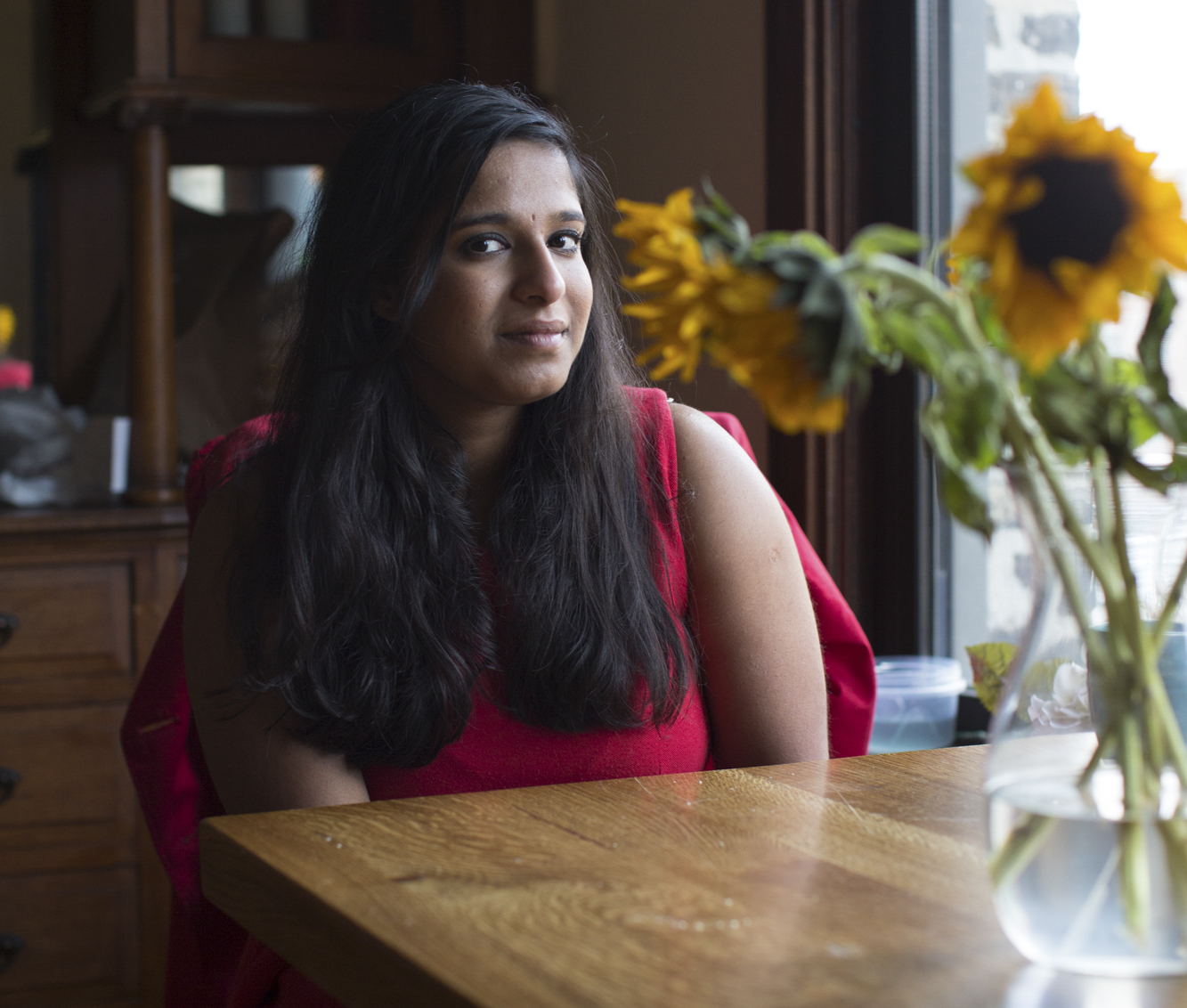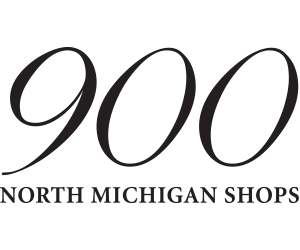Interview by Brianna Wellen
Photos by Carly Ries
I first moved to America when I was eight years old. My family and I just got our green cards last month.
We moved an hour outside of Boston, and it was a bad year to be in America for a brown person, because it was the year 9/11 happened. I remember my mom explaining to us, “Make sure if anyone asks, tell them you’re not Muslim.” We’re not Muslim, but she just didn’t want us to be hazed.
When I grew up in Worcester, outside of Boston, definitely there was a lot of xenophobia in America at that point, and me and my brother were bullied a lot as kids. My parents didn’t tell us the extent of it, but I’m sure it was not that great for them. It was a really confusing time for me, because I didn’t understand racism or what it really was or that someone could hate me just because I’m brown or think that I was a terrorist. I remember my teacher explaining 9/11 to us and she said, “And just because Meghana’s brown, doesn’t mean she’s a Muslim.” That’s a classic example of a good-intentioned white person just saying the wrong thing. Like, “She’s not Muslim, don’t be worried!” No, they shouldn’t be worried about Muslims.
It’s annoying, because I consider myself American. The majority of my life I’ve spent here, I’ve grown up here; I’ve watched The Fresh Prince of Bel-Air, I know the rap. That should be on the citizenship test—that’s how you know you’re American. Every year I have to renew my driver’s license, get fingerprints, get my blood drawn, all that stuff to keep the paperwork updated. According to my passport it still says I’m an Indian citizen just visiting America.
As a kid I was kind of our neighborhood gang leader. I would tell really good funny stories and tell the other kids that they were real. There were dumb, funny punch lines—all dad jokes, basically. But I never thought of it as stand-up. I always wanted to write for TV. I wrote this terrible story about four friends who get sucked into a cave and are under this spell. It was basically a copy of Harry Potter and The Lizzie McGuire Movie. I would write stuff like that all the time.
I lived in New York briefly, and I took improv classes at [Upright Citizens Brigade], and then I moved to Chicago kind of on a whim. March of my senior year I came here for this creative competition for advertising and my team came in third. Part of that was to get a shot at an interview at Leo Burnett for an internship, and I crushed my interview. That internship was amazing. That’s how I met Tyler [Fowler]. He wasn’t involved in comedy, and I was like, “Let’s do improv.” Then, “Let’s do stand-up.”
I was just at the Boston Comedy Festival and one of the comics there said, “I love your set, it’s so feminist.” I was like, “Thank you”—but I don’t necessarily consider it feminist. Different people consider things differently. In the south me making a joke about gay marriage is more like a political statement, but here it’s just another opinion. I have this bit about gay marriage, about how my parents were afraid to talk to me about gay marriage and a lot of parents are afraid, but I think it’s stupid because kids will believe anything. It’s a larger bit about dumb stuff that I used to believe in as a kid and how gay marriage would not have been a stretch. That bit usually goes over really well; it did not really work that well in Greenville, South Carolina. I wanted to say something like, “Oh yeah, you guys all voted for Trump!” But I didn’t want to be attacked.
I had this one set that I wrote about being depressed. I wrote it last November and I shared it with Vik [Pandya] and Tyler, and they were like, “That was amazing.” They are the reason that I performed that set, and it’s probably one of my better sets, but it’s also terrifying to perform. I performed in front of 200 people in January about being suicidal and depressed in college, which was scary. They were like, “That went so well, you need to keep doing that joke.” It was such incredible support. They’re both really good at making sure that there are sketches with female writers and actors and females on the lineup of our shows. And they’re learning too. I think as a dude you’re naturally sexist and you don’t even know it. But they’re both really good at listening to me when I say, “That’s sexist,” or, “Don’t say that.”
I want to transition into a comedy job, but I think it’s going to take me some time. I do want to eventually write for TV—that would be ideal. I wrote a pilot for the first time this year, and I’m working on a musical now. I joke that I have a nine-to-five and a five-to-nine. Sometimes I stay late at work, and I can’t go to an open mike, so I have to go home and rehearse myself or else I won’t be prepared for a show the next day. I treat comedy like it’s a job. [Team Us has] business cards, we dress up—it kind of seems douchey, but it’s also like, we’re professional. We try to do a show or an open mike every night—it forces you to be better. At the end of the day even if you’re exhausted, you’re fun exhausted.
I’m still very much like, “Do I deserve to be here?” Every time I’m on a lineup, every time someone says I’m really good, I’m like “Oh, thanks.” But what if I disappoint them the next time? I’m constantly questioning myself. It’s a creative thing, it’s a female thing, but also I think if you’re not questioning yourself you’re not improving. I’ve always been underconfident, but comedy has made me more confident and more outspoken. In spite of being scared, I’m like, “Fuck it.” v

![[photo of chris quinn]](https://people.chicagoreader.com/wp-content/uploads/2016/12/Chris_Quinn-1-150x150.jpg)
![[photo of michi trota]](https://people.chicagoreader.com/wp-content/uploads/2016/12/Michi_Trota-4-150x150.jpg)
